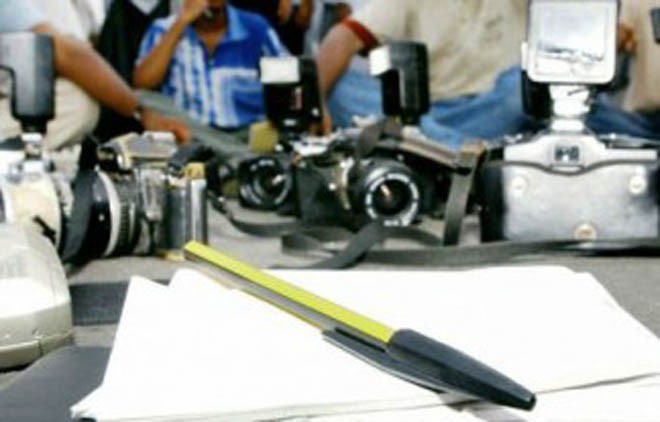
To what extent can media training help the tv professionals?

Professional training of television staff, especially those operating behind the screen, doesn’t seem to have been a priority of private television channels over the last decade or so. When the private tv channels were launched in Pakistan, mostly in the 2000s, training of staff was taken seriously by the management.
As time went by, professional training was replaced by the race for ratings. "In recent times, there are very few tv channels providing full-fledged training to their new or existing staff. We were fortunate enough to have received proper training by foreign experts when Geo tv was launched in 2002," recalls Ahmad Waleed, Controller News, Central Zone, Samaa, who started his career in electronic media with Geo television.
"The absence of proper training has vastly affected the quality of work. It is bad not just for workers but also for owners who do not want to spend money on their staff. Instead, they prefer to hire experienced staff," he says. Waleed also received media training by International Center for Journalists (ICFJ) and was awarded broadcast journalism scholarship in 2005. "There are few prominent institutions at the national level providing proper training."
Adnan Adil, a senior journalist and trainer, agrees with Waleed but only partially. It is not that we don’t have a training culture. Things are improving by the day. So we cannot outrightly say that training of television staff is non-existent. We have a few institutions to mention."
"Many of our universities have mass communication departments where students get some kind of basic training. So, candidates who apply for a job at a tv channel are not entirely illiterate when they are offered a job at a tv channel. Academic institutions teach basic things, though their standard may not always be very high," says Adil.
He lists some of the institutions who he thinks must be mentioned. "There is Centre of Excellence in Journalism at the Institute of Business Administration (IBU) in Karachi. They offer short training courses and it costs very little. We have the National Academy of Performing Arts (NAPA) in Karachi. We also have National College of the Arts (NCA) in Lahore. Pakistan Electronic Media Regulatory Authority (Pemra) offers courses every now and then ICFJ has also conducted training sessions for the media in Pakistan. Institutions like Internews have conducted some valuable training."
Read also: Editorial
"Even in these times, Geo has probably the most efficient training culture along with Dunya and a few others. These days, the upcoming Hum News channel is conducting trainings of its staff. Geo tv conducts regular training sessions of their staff," says Adil.
In the absence of the required number of training institutions or the realisation for training in the first place, "what happens is that the new lot in electronic media comes with poor language skills; they have very poor general knowledge and they have still not acquired the habit of reading newspapers. This is also because our stress is more on teaching theory than practical aspect of training," Adil points out. "In our part of the world, cameramen usually get on-job training because it is a tough job and low-paid as well," he concludes.
Whatever the quality of training itself, how does the training help new entrants in the field of electronic media practically? At the start of private tv channels in Pakistan, electronic media persons were taught by foreign media experts how to make a channel popular as well as credible at the same time. This was good on paper but quite different practically.
The market forces took over and journalistic principles and training lessons largely receded into the background soon afterwards. Today, the market is saturated so experienced hands can be hired.
Naveed Naseem, head of Election Cell/Special Projects 92 News, believes that training of tv professionals will be applicable to their work if there is a watchdog that ensures tv channels’ accountability in the face of the race for ratings. "In the US, for instance, tv channels are directed to unfold a law and order story gradually, especially the one that involves casualties. We do just the opposite here without any confirmation from the hospital concerned," he says. "It is at this point that the principles of training are abandoned in favour of higher ratings."